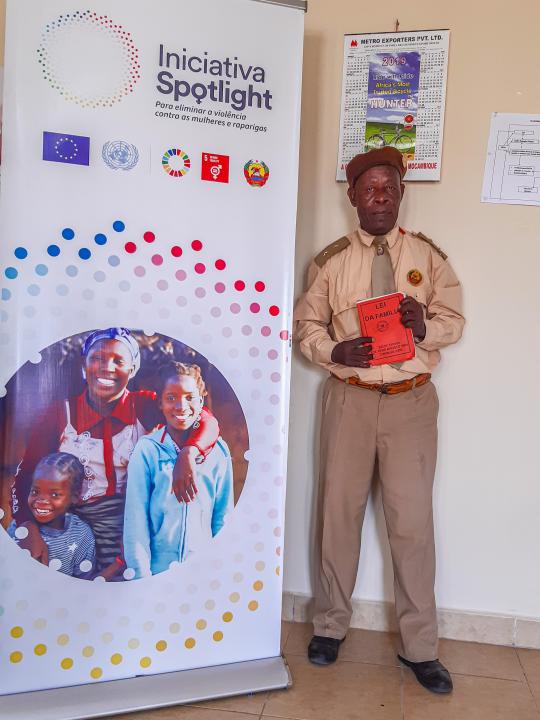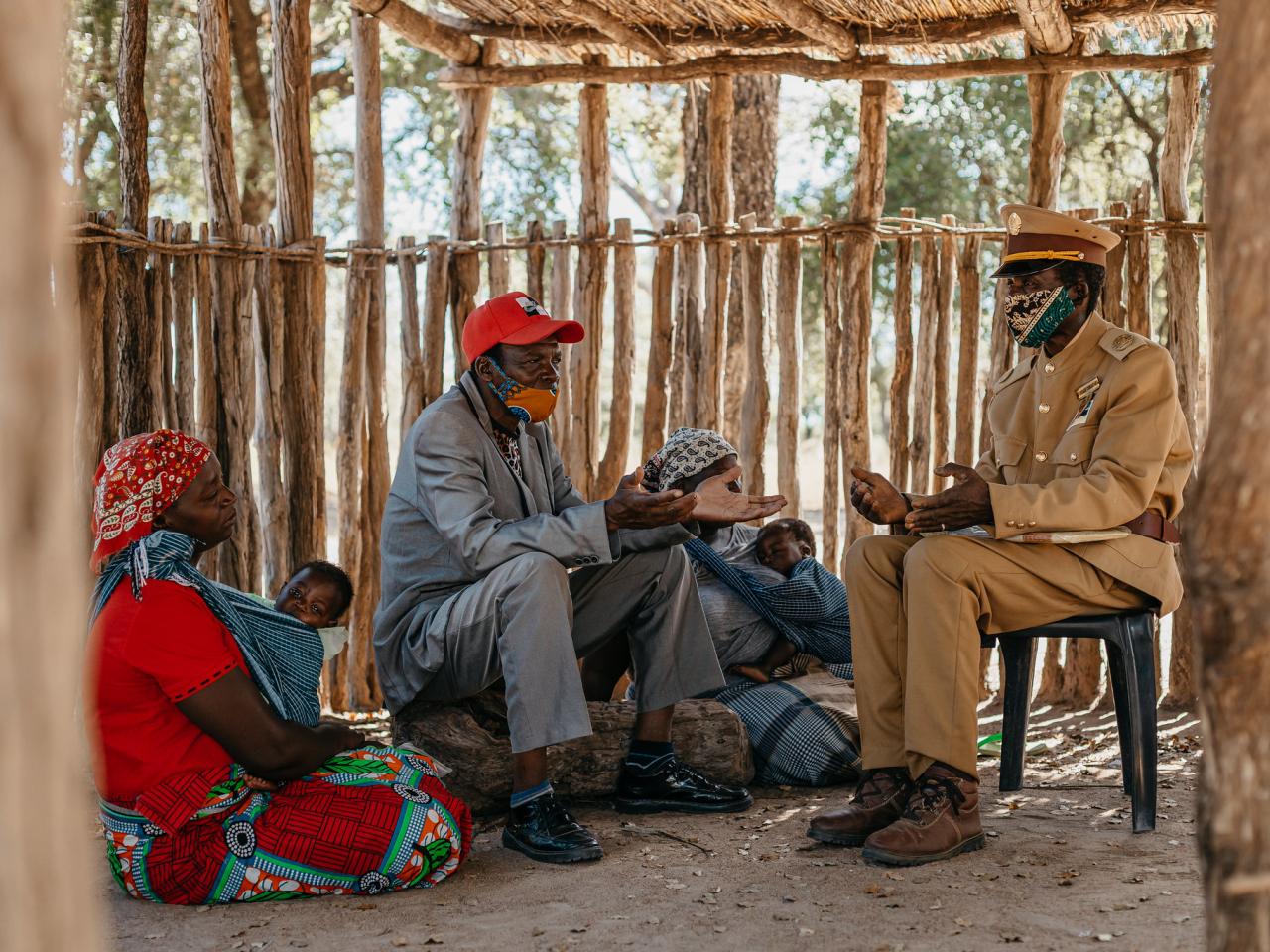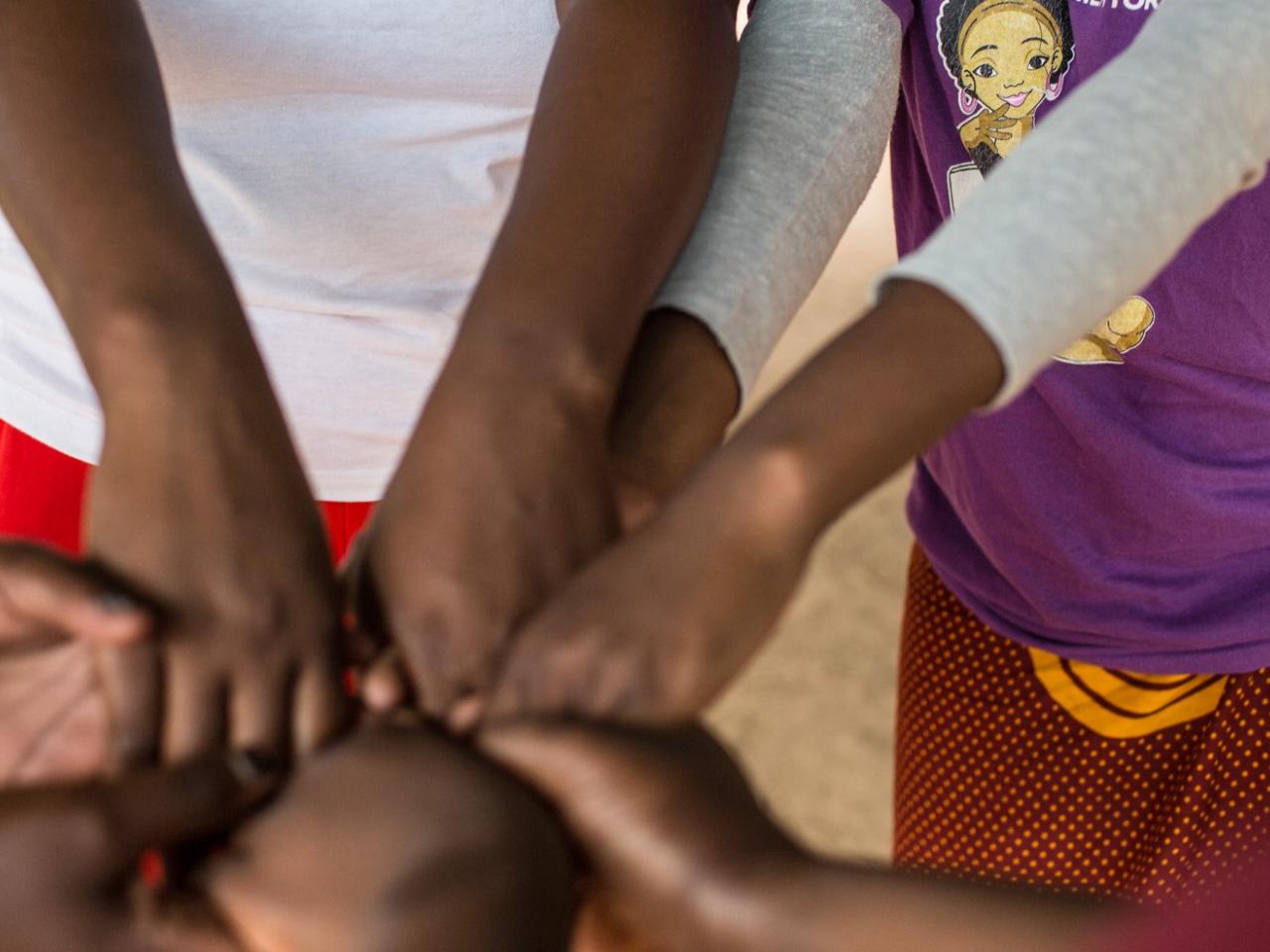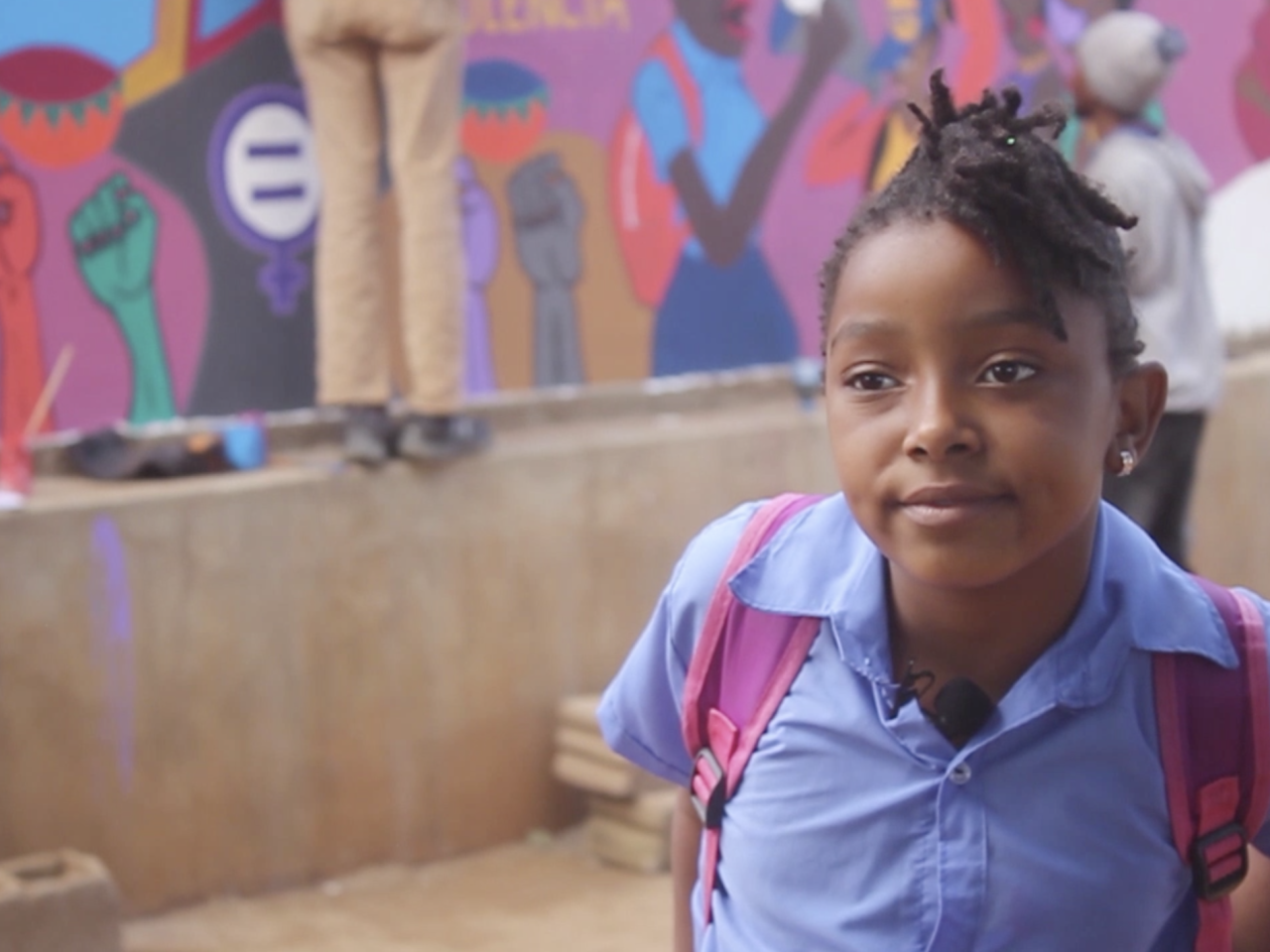A traditional leader’s quest to end gender-based violence in Mozambique
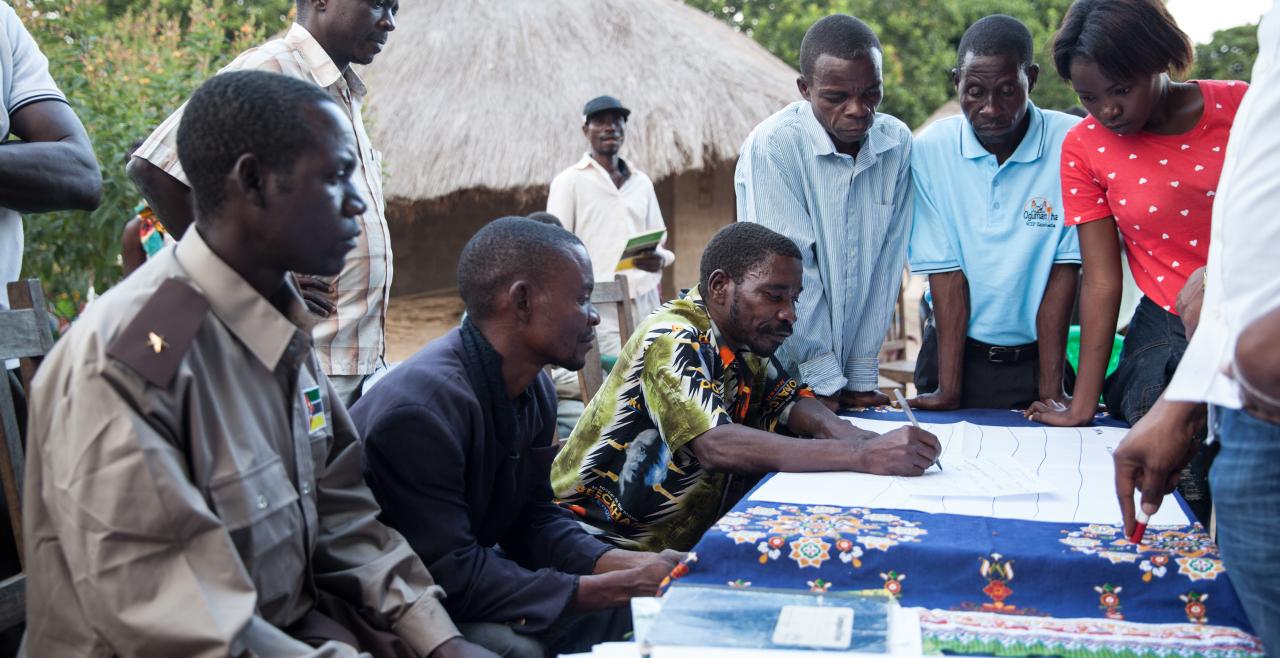
NAMPULA, Mozambique – In Mozambique, community and traditional leaders are highly respected and act as guardians of social norms. They can also be powerful allies in deconstructing harmful practices against women and girls in their communities.
With a pile of law handbooks under his arm, Augusto Cabide, 74, a traditional leader from Marere chiefdom in Nampula Province, shares his story.
“What keeps me going is helping to prevent girls from getting pregnant or married because they are poor. I don’t want this to happen. I really don’t.” - Augusto Cabide, community leader from Nampula province
Last year, Mr. Cabide took part in a training session for traditional leaders on gender-based violence prevention and response at the Integrated Assistance Centre, in Nampula City, northern Mozambique. Since then, he has taken it upon himself to bring change to his community. These centres, called “CAIs” by its Portuguese acronym, are 'one-stop´ centres that allow survivors of violence to report their attacker, seek medical attention and access counselling at a single location, without having to retell their story multiple times or relive their trauma.
“We received training here at CAI, (...) it was very important to guide our work. We now know that we also play a part in gender-based prevention and response.”
The centre was rehabilitated and equipped with Spotlight Initiative support, a programme led by the Ministry of Gender, Child and Social Action (MGCAS), funded by the European Union and in partnership with United Nations and civil society organizations. It is one of 24 government-run centres which integrate health, social action, police and justice services under one roof, delivering vital care, especially to women and girls experiencing violence across the country.
During the training, Mr. Cabide learned about the country’s multisectoral mechanism to respond to gender-based violence, which survivors can access through a number of entry points, such as the Centres for Integrated Assistance, health units, adolescent-friendly services, police stations or justice institutions.
“The training was very important,” says Mr. Cabide, who is one among over 300 leaders trained by the Spotlight Initiative across the country.
HELPING SURVIVORS ACCESS SUPPORT AND SERVICES
Now, Mr. Cabide knows what to do when he receives a report of violence in his community; instead of seeking a settlement through customary practices, Mr. Cabide refers the case to the centre.
He knows that once there, survivors access lifesaving and integrated support without having to retell their story, revisit their trauma multiple times or travel to different locations, thus improving confidentiality.
He also knows that cases will be referred to the justice system, increasing the chances of punishing perpetrators and protecting survivors.
“When a case [of violence] is reported to me, and since I don’t have competency to solve it, I refer the case to the centre. I tell other leaders they should do the same,” says Mr. Cabide.
According to the latest Demographic and Health Survey (DHS 2011), 37 per cent of Mozambican women aged 15 to 49 suffer violence during their lives, and one in two girls marry before 18 – one of the highest child marriage rates in the world.
INFLUENCING OTHERS TO END GENDER-BASED VIOLENCE
Despite the prevalence of violence against women and girls in Mozambique, Mr. Cabide remains determined. He knows that he is supported by the government and the law.
“What keeps me going is helping to prevent girls from getting pregnant or married because they are poor. I don’t want this to happen. I really don’t.”
Traditional leaders like Mr. Cabide set a strong example and have a positive influence on their peers.
“Since the training, I have told other leaders about this centre. The Government has invested in it and we need to promote it. There are laws that punish [violence]. This is our centre and it is in our hands.”
Government institutions from the social welfare, health, justice and police sectors, led by the Ministry of Gender, Child and Social Action, are the backbone of the Spotlight Initiative in Mozambique, along with over 20 civil society organizations (CSOs). Together, they have reached more than 1.9 million people, of which over 1.1 million are women and girls across 10 districts of Gaza, Manica and Nampula provinces.
By Leonor Costa Neves with reporting by Laura Lambo

